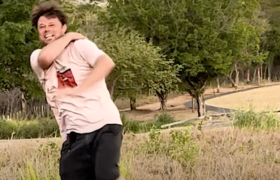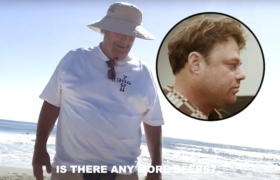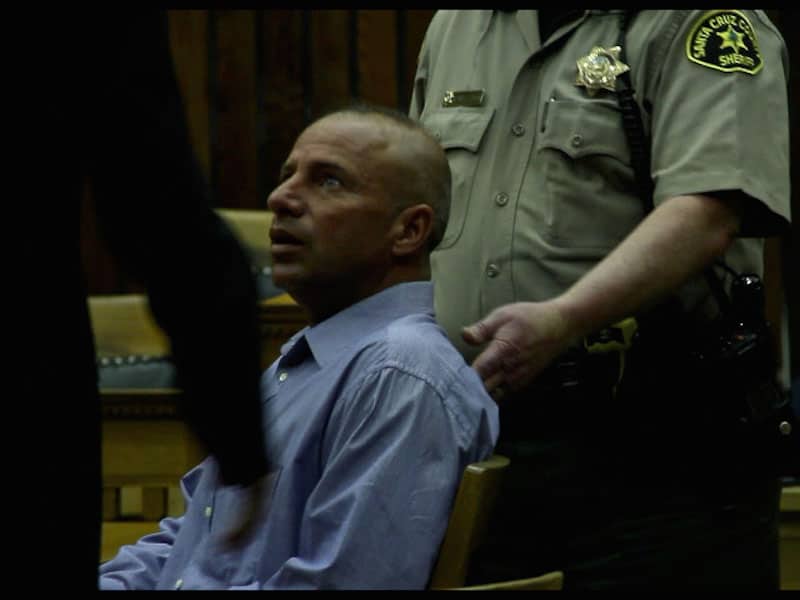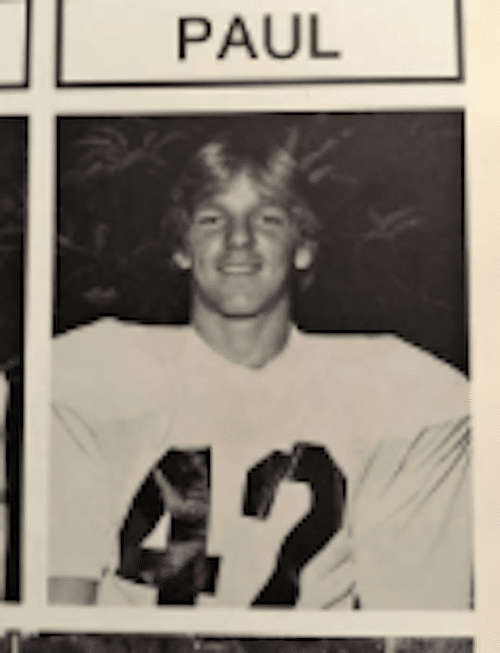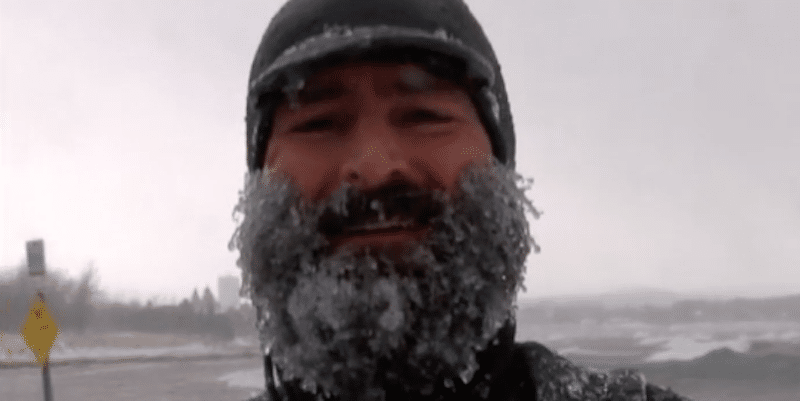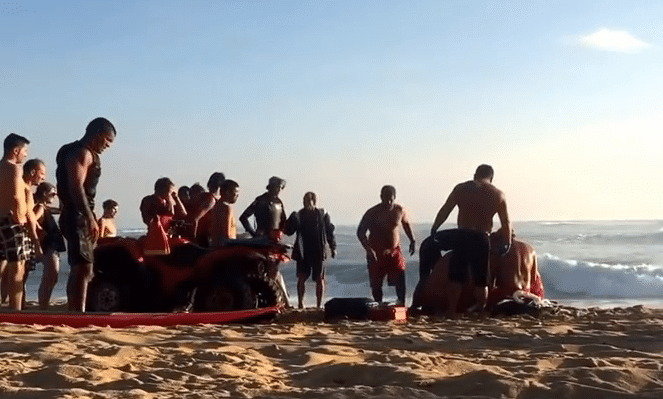The former Santa Cruz pro Anthony Ruffo and his life as a dealer of methamphetamine…
(Editor’s note: The documentary Learning to Breathe, a long-form film about the former Santa Cruz pro Anthony Ruffo and his life as a dealer of meth and how it ruined his community, costs $US7.99 to watch on iTunes. For the next 72 hours, it’s free to watch at BeachGrit.)
In an uncertain world there are few things you can count on. The sun will rise and set, the tides will come and go, and meth addicts will lie with every word.
Which is important to remember as you watch Learning to Breathe: From dealer to healer. A young addict is a pathetic thing, an old one dangerous. You don’t make a decades long career of inflicting pain on those around you, and still have them around you, without knowing how to smile sincerely. Say the words, shed those crocodile tears. Deflect blame, provide a handhold, some excuse to which they can cling.
And so when Anthony Ruffo states, at the beginning of the documentary on his addiction and supposed redemption, “When I say these things there’s no justification. I’m just telling you why,” it’s important to remember that he’s obviously spun, pupils dilated.
His words mean nothing. Ruffo’s tale is not that of a young man gone wrong, it’s that of an old man desperately seeking to dodge responsibility. Ruffo says he was not a gang member, he merely worked with them. He was not a violent man, others committed violence on his behalf. Every admission is followed by a but or because, as though reasons matter.
A young addict is a pathetic thing, an old one dangerous. You don’t make a decades long career of inflicting pain on those around you, and still have them around you, without knowing how to smile sincerely. Say the words, shed those crocodile tears. Deflect blame, provide a handhold, some excuse to which they can cling.
He gleefully recounts successfully flushing more than a pound of meth in the face of a police raid, claims, “We all know, man, when you get involved with drugs danger lurks all the time.” Which is not true. Danger lurks when you flip pounds, when you rob people, when you forego the protections of society and chase your wants like an animal.
Director Rocky Romano pieces together an interesting narrative, following Ruffo from his 2010 arrest to 2012 sentencing. Interviews with the Santa Cruz crew, through which addiction ran amok, are surprisingly forthright. Family members of Ruffo, and other local addicts, share an insight into how they deal with the agony of a loved one’s slow demise.
Unfortunately, that insight lays bare the desperate need to find reasons free of accountability. “Drugs” are personified. They ruin lives, lead us to make terrible choices. It’s understandable, forgivable, that need to cope, to justify. Necessary when seeking to sustain the love you want to feel for a person who is destroying themselves, and you.
His words mean nothing. Ruffo’s tale is not that of a young man gone wrong, it’s that of an old man desperately seeking to dodge responsibility. Ruffo says he was not a gang member, he merely worked with them. He was not a violent man, others committed violence on his behalf. Every admission is followed by a but or because, as though reasons matter.
Anthony Ruffo is a charismatic man, with a broad smile and confident gaze. The type of man who can make you believe the lie you know he’s telling. The type of man who believes the lies he’s telling. But the words of his prosecutor are true, “He’s not a victim, he has victimized.”
It’s the third act that left a sour taste in my mouth, wherein we watch Ruffo attend rehab in New York, then return to Santa Cruz to begin his good works. There are tears, and hand holding. Circle session bonding, declamations of change and rebirth and hope.
It’s poignant, nearly believable, if you’ve never been on the inside of a relationship with an addict. But if you have you already know, their words are hot air in chase of desire. Experts at disingenuous dissemination. A prudent man cares enough about himself to walk away in the beginning, leave the lost to their own devices.
We see Ruffo at his sentencing, handed a relatively light sentence in the context of his charges. Not that he gets off easy, a year of freedom lost is a heavy price. Most striking is the look on his face when he learns he’s going away. Utter confusion, total surprise, as though he really believed that a year of sobriety and decency could atone for a life of depravity.
“Why put that in a cage?” he asked The New York Times. “If I come into court a changed man from when I got busted and I’m showing these positive results, why wouldn’t you want to keep that person going in that direction?”
Because redemption is a myth, a get-out-of-jail free card handed out by a lord and savior who does not exist. In this world good deeds don’t undo bad, no one has a right to ask forgiveness. It can be given, and maybe should be, but to expect it demonstrates a near total lack of insight. Nothing unrings a bell. People may still love you, but they’d be fools to trust you.
